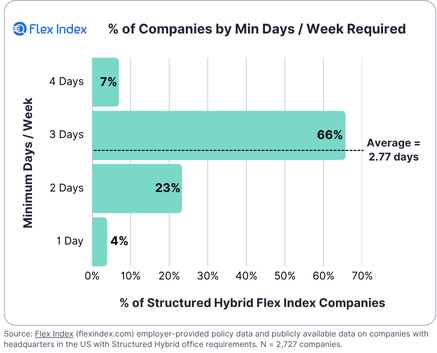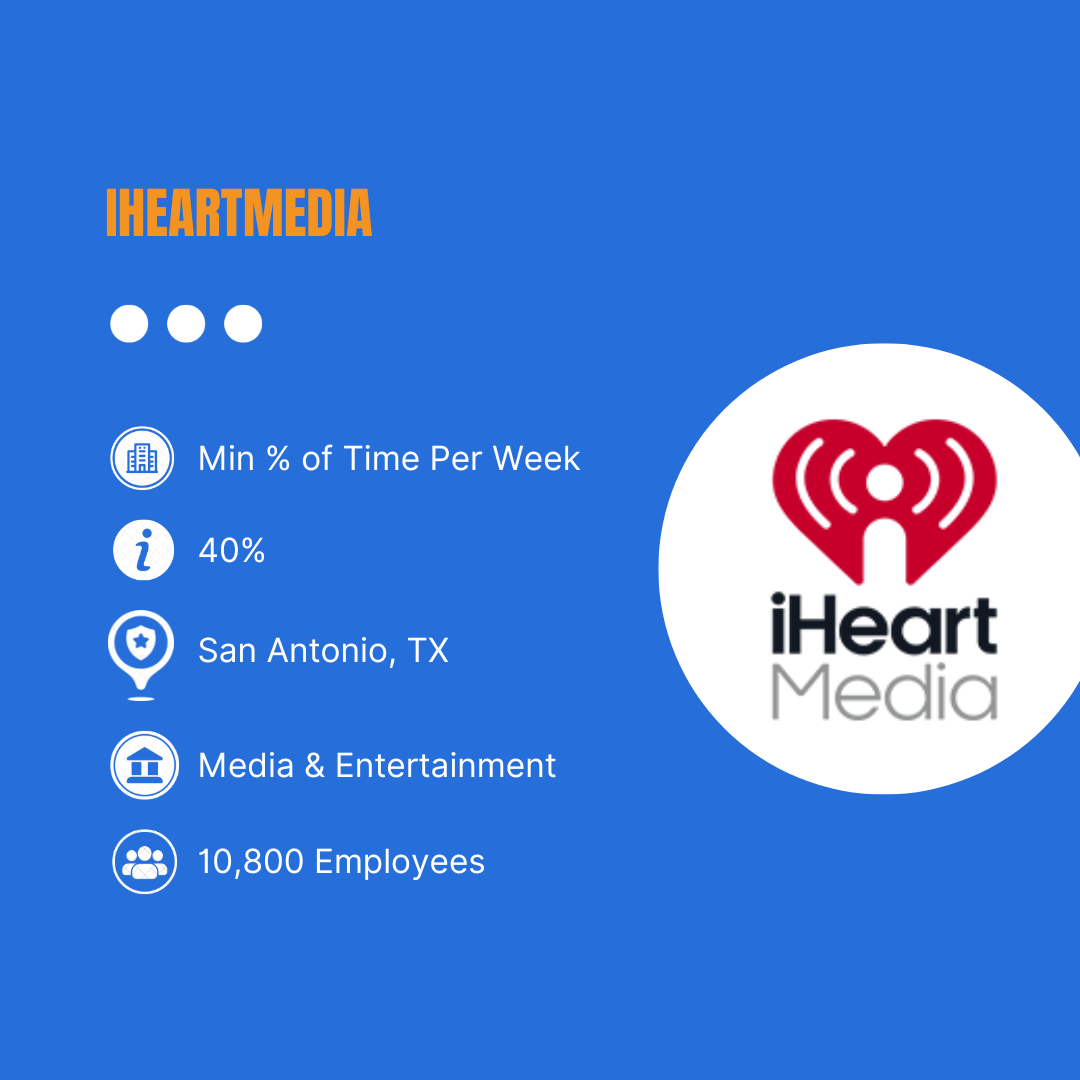How Cisco Is Making Location Irrelevant
Plus, discover winning RTO strategies from industry experts
👋 Happy Tuesday! While some companies tighten RTO mandates, Cisco's Global Hybrid Work Study of 21,000+ workers shows the opposite works better—fully flexible policies report 74% employee approval and attract 50% of high performers versus just 19% of low performers at stricter companies.
In this week’s edition:
🤖 Cisco's AI-First Hybrid Strategy
📊 Avg Office Requirement Days
🎥 RTO Strategies Straight from the Experts
Current Subscribers: 10,049
Please forward to colleagues and friends!
THIS WEEK’S FLEX FOCUS 🔍
How Cisco Is Making Location Irrelevant
While some companies continue wrestling with RTO mandates, Cisco is taking a radically different approach: investing heavily in technology that makes remote work so seamless that physical location becomes irrelevant.
The tech giant's Distance Zero initiative uses AI-powered systems and multiple cameras to automatically focus on key decision-makers and capture non-verbal cues that remote participants typically miss—going far beyond standard video calls to replicate in-person interactions digitally.
The timing is strategic. Cisco's latest study of over 21,000 workers reveals that nearly 80% of employees believe RTO mandates stem from management's lack of trust in them. In contrast, more than 60% would accept pay cuts for greater remote flexibility.
Rather than forcing employees back to desks, Cisco is betting that companies mastering seamless hybrid technology will gain significant competitive advantages in talent acquisition and retention.
FLEX WORK QUICK HITS 💥
Stay ahead of the curve with our curated roundup of the trending flexible work stories making waves right now. Here's what you need to know 👇
Gallup: Only 23% of Gen Z prefer fully remote work versus 35% of older generations—Gen Z is more likely than other generations to want colleagues working remotely less often, citing loneliness.
Inc.: Starbucks corporate employees threaten to quit over new 4-day RTO mandate, with some managers posting resignations on LinkedIn rather than relocate to Seattle.
HR Dive: RTO mandates from Starbucks, Target, and Google drive an 8.3% year-over-year office attendance increase—but 40% of office interactions still include remote participants.
Fox Business: TD Bank will require staff to work in-office 4 days per week starting this Fall.
STAT OF THE WEEK 📈
Avg Office Requirement Hits 2.77 Days Per Week
Minimum Days / Week policies are increasingly dominant among Structured Hybrid companies, rising from 71% in Q2 2024 to 80% in 2025. Meanwhile, specific days of the week requirements dropped from 17% to 10% over the same period.
The average company with a Minimum Days / Week policy now requires employees in the office 2.77 days per week, up from 2.59 days in Q2 2024—an increase of 0.18 days per week.
FLEXPERT INSIGHTS 🧠
RTO Reality: The Best Data & Strategies Straight from the Experts
The RTO conversation is no longer about if—it's about how to do it right. RTO done wrong costs you talent, trust, and time. RTO done right earns you retention, respect, and revenue.
Join an all-star panel on July 30, 2025 for "RTO Reality: The Best Data & Strategies Straight from the Experts." You'll get insider insights from Brian Elliott (CEO of Work Forward, former Google/Slack exec), Janet Pogue McLaurin (Global Director of Workplace Research at Gensler), Jessica Kane-Dwulet (Sr. Workplace Experience Manager at Cushman & Wakefield), and Jenny Moebius (SVP at Skedda).
Discover the latest RTO data that's shaping workplace decisions, learn how to transform your office into a destination employees actually want to visit, and walk away with actionable strategies to approach RTO with intention and impact.
Can't make the live event? Register today to receive the on-demand recording once it wraps.
COMPANY SPOTLIGHT ✨
iHeartMedia is a leading global media and entertainment company specializing in radio, digital, outdoor, mobile, social, and live events. Founded in 1972, the company's mission is to inspire and enrich lives through providing captivating entertainment and impactful news. With its headquarters in San Antonio, Texas, iHeartMedia operates 850+ broadcast radio stations in 150 markets throughout the U.S.






